KBKG
Cost Segregation in Real Estate
Understanding cost segregation in real estate could benefit your tax strategy
Streamlining The Process
Understanding Cost Segregation in Real Estate
Residential buildings diminish in value over 27.5 years, and commercial properties depreciate over 39 years
Cost Segregation for Real Estate
If you invest in property or have plans to invest, understanding cost segregation in real estate could benefit your tax strategy. Buying, building, or renovating a home or commercial property is expensive. Fortunately, investors can turn to cost segregation for financial relief and more efficient tax planning.
Understanding Cost Segregation in Real Estate
Most property owners know about the depreciation deduction, allowing you to write off the building depreciation when you file taxes. Land does not depreciate. However, residential buildings diminish in value over 27.5 years, and commercial properties depreciate over 39 years.
While beneficial, the average single annual deduction is not significant. With a cost segregation study in real estate, you can fast-track the depreciation schedule for properties other than your personal home and increase the amount of your deduction yearly.
Think of a building and its surrounding land as more than a single structure. It has separate elements, such as carpeting, plumbing, sidewalks, heating and cooling ducts, and much more. With cost segregation in real estate, you categorize the property’s individual assets and benefit from the accelerated depreciation schedule of specific building components.
Breaking Down Cost Segregation Analysis in Real Estate
There are four general steps in a cost segregation study:
#1 Completing feasibility analysis
First, your team will study every element of the property, including the electrical systems, roofing, and more, to determine if you are a strong candidate for cost segregation.
#2 Gathering the information
Some documentation you will need for the cost segregation study includes inspection reports, a recent appraisal, or the records from closing the purchase. Your team uses these documents to calculate the value of the property and its individual systems.
#3 Analyzing the property
Next, your team determines the cost of operation. Property records, blueprints, and inspection reports provide information on operational costs that can depreciate over five, seven, or 15 years.
#4 Creating a report.
Finally, your team will compile a report containing all the information gathered through the cost segregation analysis and use it to determine what you could save when filing income taxes and what strategies you should employ.
#1 Completing feasibility analysis
First, your team will study every element of the property, including the electrical systems, roofing, and more, to determine if you are a strong candidate for cost segregation.
#2 Gathering the information
Some documentation you will need for the cost segregation study includes inspection reports, a recent appraisal, or the records from closing the purchase. Your team uses these documents to calculate the value of the property and its individual systems.
#3 Analyzing the property
Next, your team determines the cost of operation. Property records, blueprints, and inspection reports provide information on operational costs that can depreciate over five, seven, or 15 years.
#4 Creating a report.
Finally, your team will compile a report containing all the information gathered through the cost segregation analysis and use it to determine what you could save when filing income taxes and what strategies you should employ.
For example, assume you purchase a residential property for $2 million with land valued at $800,000. Without a cost segregation study, you deduct the depreciation value of the building as a whole. Since the land does not count, you only deduct depreciation from $1.2 million.
Using the same example, imagine you employ a cost segregation tax strategy. The result could include depreciation of personal property at $200,000 over five or seven years and land improvements at $50,000 over 15 years. With the building’s depreciation value, that would leave you with a single-year deduction significantly higher than without real estate cost segregation. Use an online cost segregation calculator to estimate your savings instantly.
Benefiting From Cost Segregation In Real Estate
Anyone who purchased or built an investment property during the last 15 years could benefit from cost segregation for real estate. You can conduct an analysis at any time. However, the most beneficial time is within a year of purchasing, remodeling, or building. If you have questions about tax credits, cost recovery, or deductions, we are ready to help!

KBKG Tax Insight: Overcoming Passive Losses from Self-Rental Property Using the Grouping Election By Eddie Price & Amar Patel | Principals
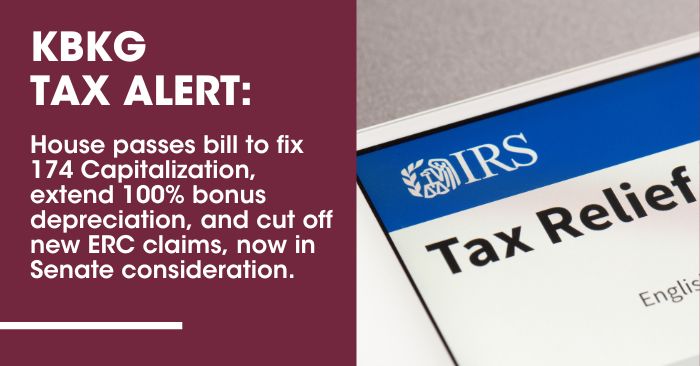
KBKG Tax Alert: House passes proposed bill to Fix 174 Capitalization, Extend 100% bonus depreciation, and Cut Off New ERC Claims,
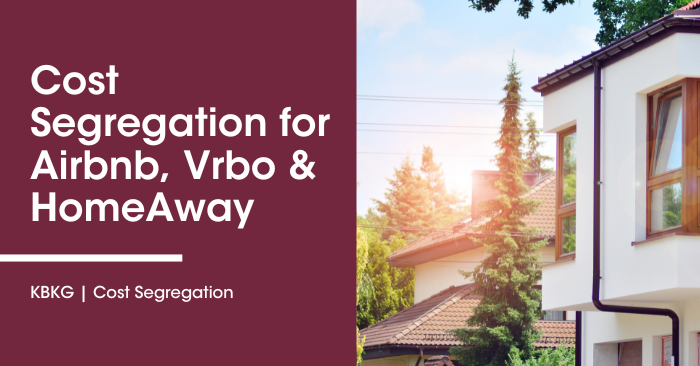
Cost Segregation for Airbnb, Vrbo, HomeAway If you're an Airbnb, Vrbo, or HomeAway host, you're likely familiar with the complexities of
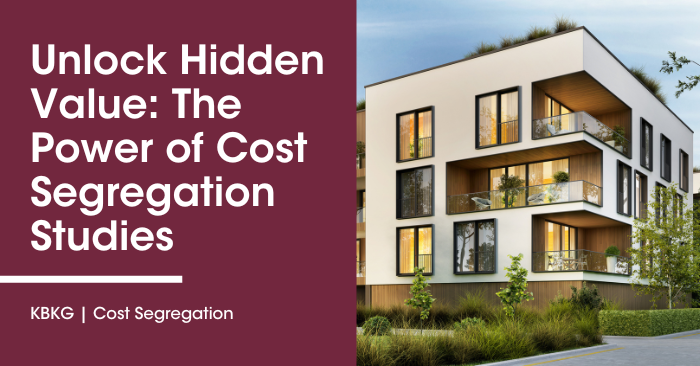
Unlocking Hidden Value: The Power of Cost Segregation Studies Optimizing tax benefits and enhancing cash flow are pivotal to achieving financial
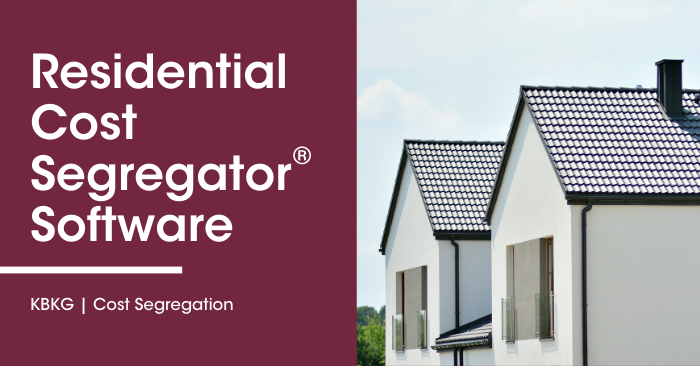
KBKG's Residential Cost Segregator Cost segregation is a powerful tool for maximizing tax benefits on real estate investments. This IRS-approved strategy
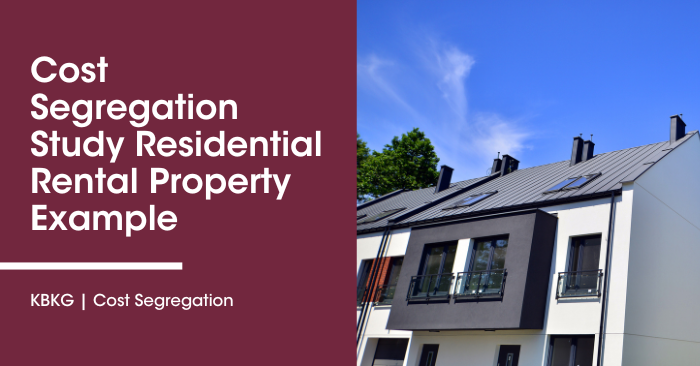
Accelerate Deductions for Better Cash Flow With KBKG Tax professionals often face residential cost segregation challenges when dividing expenses for multi-unit

